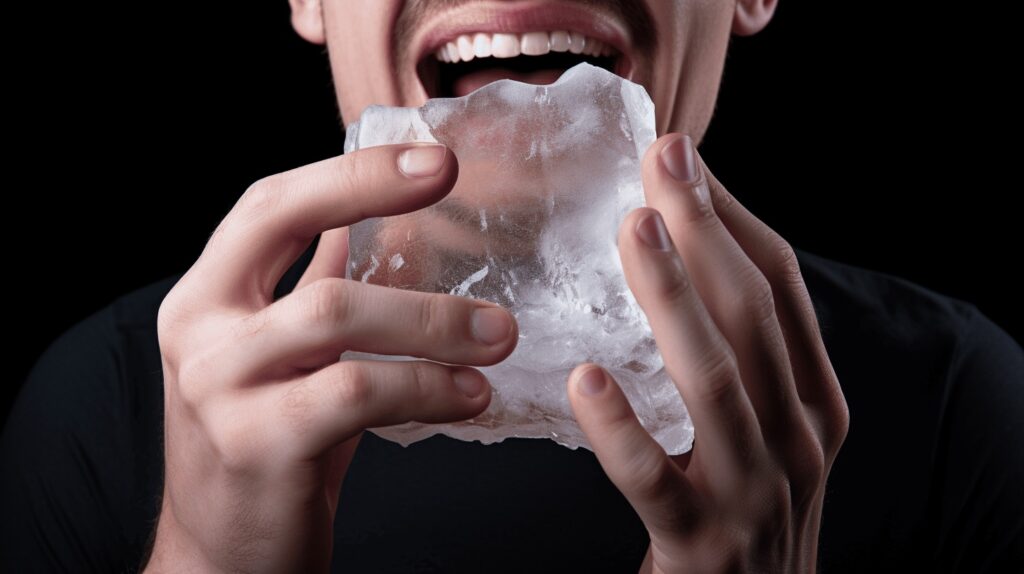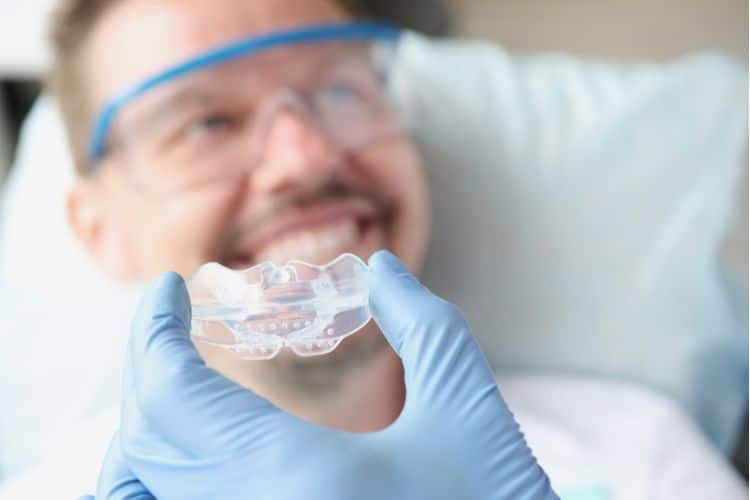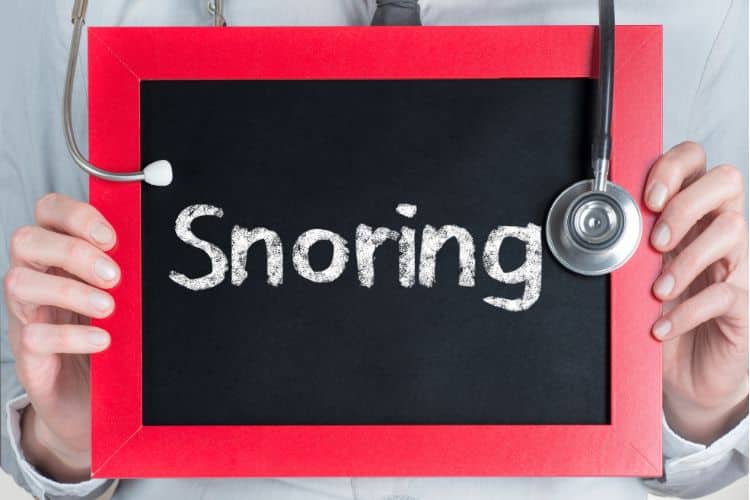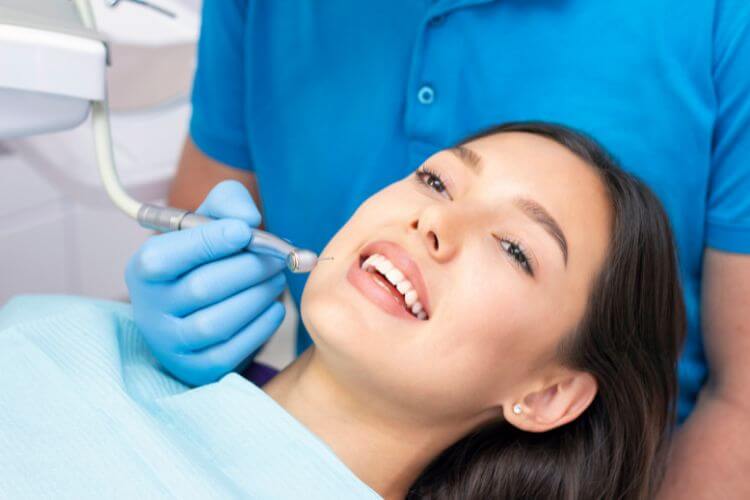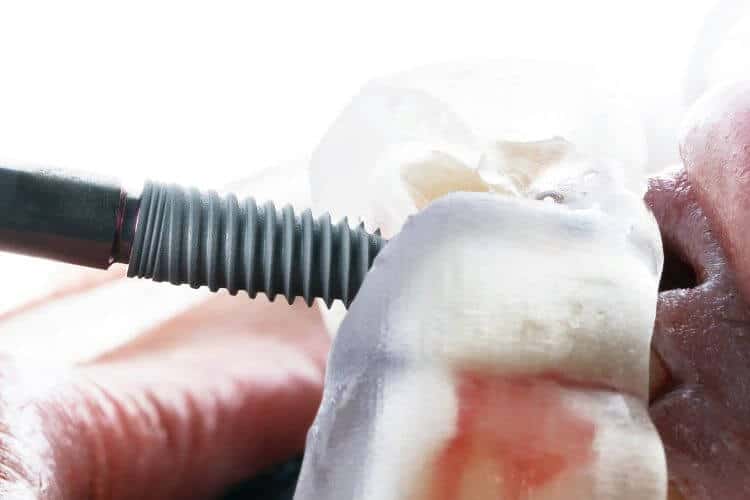Tooth injuries can occur at any time and anywhere.
A leisurely day at the park, enjoying a catch-up session with friends, or even an intense sports game can quickly turn into a crisis if a tooth injury occurs. Severe pain, bleeding, or outright tooth loss can send anyone into a panic.
But take a deep breath. We’re here to guide you through the chaos.
This article will provide you with indispensable knowledge about different types of tooth injuries and the critical first steps to take in such dire circumstances.
We will also cover the importance of seeking professional dental care in case of such emergencies and how good oral health can reduce the risk for potential mishaps.
Put your fears aside. We’re ready to equip you with everything you need to know about emergency dental care and handling tooth injuries like a pro.😊
Table of Contents
Types of Tooth Injuries
There are few things more unsettling than experiencing an unexpected tooth injury, whether from biting on a hard food item or accidents such as a fall or sports injury.
The moment that you feel the uneasiness in your mouth, you know that something isn’t quite right.
🤨 Potentially, you could be dealing with one of several types of tooth injuries.
Understanding these injuries, their associated pain levels and treatment options can help you better handle these situations.
Let’s dive in and explore.
Immediate Response for Tooth Injuries
We’ve all been there.
One moment you’re enjoying a sweet, refreshing ice cream cone or a juicy caramel apple, and the next you’re experiencing a sharp, throbbing pain in your tooth.
What do you do when you’re facing a dental emergency like a cracked, knocked-out, or loose tooth?
Don’t panic just yet – we’ve got your back.
Cracked or Chipped Tooth
When you suddenly find that your once perfect tooth now looks like it took a hit from a miniature hammer 🔨, it’s critical to take immediate action.
A cracked or chipped tooth can range from a slight cosmetic issue to a severe problem threatening the health of your tooth.
- First and foremost, rinse your mouth with warm water. This helps cleanse the area and reduces the risk of infection.
- If any swelling occurs, apply a cold compress.
- Avoid chewing or biting down on the affected tooth as it may further damage it.
- Reach out to your dentist as soon as possible. They’re the qualified experts who can evaluate your situation and provide appropriate treatment. Don’t put off this step – your tooth is counting on you!
Knocked-Out Tooth
Even the thought of a knocked-out tooth can send shivers down your spine, but with quick action, the tooth can often be saved.
- Stay calm. Easier said than done, right? But remember, panic won’t help.
- Try to find the missing tooth and, when you do, handle it only by its crown (the part that chews food). It’s a delicate situation, so take care not to touch the root part.
- Rinse it gently without scrubbing it or removing any tissue fragments.
- If possible, try to place it back in its socket. But don’t force it.
- If you can’t, place it in a cup of milk or water with a pinch of salt.
- Remember, time is of the essence. Bring your tooth to the dentist as soon as possible (ideally within an hour).
Loose Tooth
Discovering that a tooth is loose can be both startling and concerning, especially if you’re far past your childhood tooth-losing years. However, there are several steps you can take:
- Avoid wiggling or pulling on the loose tooth. This could result in a completely dislodged tooth.
- Stick to eating soft foods and avoid chewing with the loose tooth.
- Seek dental care ASAP. Even if the tooth tightens up again, it’s essential for a dentist to assess the situation.
Knowledge, speed, and calmness are your best friends when facing tooth injuries.
Remember, the faster you act, the higher the likelihood of minimizing damage and saving your tooth.
Don’t let unexpected dental calamities cause unnecessary stress. Armed with the right information and quick response, you can face these challenges head-on. Injuries of this nature are a call to action.
Don’t delay – your pearly whites 🦷 will thank you!
Preventing Further Damage
Preventing further damage to our valued possessions, whether they be physical or digital, is paramount to keeping our lives running smoothly.
It’s no small feat and often requires us to be proactive, innovative, and always on our toes. However, it’s not an impossible task, especially if we leverage advanced tools and meticulously follow some basic yet effective strategies.
Let’s take a meander down a path that teaches us how to shield our assets from harm.
To commence with, it’s crucial that we maintain our belongings regularly. This might sound basic, but you’d be surprised at how often this is overlooked. Yes, it’s that subtle layer of dust you didn’t clean off your laptop or the software update you decided to snooze time and time again.
Regular maintenance can prevent a majority of damage before it’s even had the chance to become a significant problem.
Here are a few things we can start doing:
- Regular Cleaning: Dust and grime aren’t just unsightly. They can be downright destructive. Keep your belongings clean, and they’ll serve you well for years to come.
- Timely Updates: Especially with digital assets, staying up-to-date with software updates can prevent hackers from exploiting vulnerabilities in your systems.
- Servicing: Regular service checks aren’t only for your car. Serving your appliances, gadgets, or anything else that needs regular upkeep can catch issues before they escalate into fearsome problems.
“Prevention is better than cure.” This good old saying is pretty accurate when it comes to protecting our possessions against damage.
But a preventive approach also requires us to be prepared for unfortunate circumstances should they arise. This brings us to the concept of insurance. As inconveniences are a part of life, insuring our valuable assets can provide an extra layer of protection in case of any accidental damage or loss.
To wrap it up, yes, we indeed live in a world where damage to our valuables can happen at any moment. However, we also live in a world where prevention, innovation, and preparedness can save us a ton of trouble.
It’s not easy, but with consistent effort and vigilance, we can ensure that the belongings we hold dear are shielded from harm. After all, isn’t an ounce of prevention worth a pound of cure?
Seeking Professional Dental Care
Does your smile light up a room? Can you chomp on an apple with ease and confidence?
For many of us, the answer might not be an unreserved ‘yes’. Our dental health is an integral part of overall well-being, but often, we overlook it until a nagging toothache or swollen gum demands our attention.
Just as you would routinely check your vehicle, or never hesitate to seek a professional for structural home repairs, it’s crucial to extend the same care to your pearly whites.
Let’s delve into why it’s beneficial to seek professional dental care regularly. 🦷
First, you might wonder: “Isn’t brushing and flossing at home enough?”
Not quite. While these practices are fundamental to oral hygiene, they can’t replace a professional’s evaluation.
Remember:
- Dentists have an expert eye to spot issues you might miss. They can detect potential problems early, preventing serious complications down the line.
- Dentists have specialized tools to thoroughly clean your teeth and gums, going far beyond your regular brushing and flossing.
- Regular dental check-ups provide you with personalized advice and treatment plans based on your specific needs.
Make no mistake, the cost of ignoring dental health can be high. Gum diseases like gingivitis and periodontitis, often a result of poor oral hygiene, not only lead to tooth loss but are also linked with heart disease, diabetes, and even premature births.
You might think that avoiding sugary treats is enough to prevent cavities, but did you know that even healthy foods can lead to tooth decay?
Citrus fruits, dried fruits, and whole grains can also stick to your teeth, causing damage over time. Thus, regular deep cleaning by a professional becomes a necessity.
More than anything, the peace of mind that comes with a clean phone bill on health cannot be understated.
When we look after our dental health, we’re also taking care of overall health. All it takes is bi-annual visits to the dentist to keep that sparkling smile on your face, and the troubles of dental complications at bay.
So next time you’re pondering over your health priorities, remember to count your teeth in. After all, your stunning smile and those worry-free bites into your favorite foods are worth it!
As the old saying goes, “It takes 43 muscles to frown, 17 to smile, but only a professional dentist to keep them sparkling.” Keep smiling! 😄
Common Causes of Tooth Injuries
We all love flashing our pearly whites, don’t we?
But, little mishaps and injuries can sometimes threaten the health of our teeth.
Understanding what causes tooth injuries is essential for preventing damage and ensuring that our smiles stay as radiant as ever!
💫 Here are some of the most common situations that lead to tooth troubles.
Physical trauma is one of the most common causes of tooth injuries. This could range from accidents during recreational activities, car crashes and even seemingly harmless habits like grinding your teeth at night. It’s not just the adults, children’s teeth are also susceptible to injuries from playground mishaps or sports activities.
Diet and nutrition play a huge role, too. Consuming sugary foods and drinks contribute to tooth decay, a type of injury that takes place over time. Acidic foods and drinks can also wear down the enamel, making the teeth more susceptible to infection and decay.
Aging is a natural process 👵 we can’t escape. As we age, our teeth do too, leading to increased risk of chipping, cracking, or decay. Committing to regular dental check-ups can help us navigate this gradual decline and maintain dental health.
Braces or other orthodontic appliances can sometimes lead to injuries. As these devices work by applying pressure to the teeth to realign them, they can inadvertently cause damage if not monitored correctly, causing cuts, sores, or tooth movements that lead to pain or discomfort.
While most tooth injuries are unintentional, there instances when they can be self-inflicted, often resulting from anxiety, stress, or mental health conditions. This is generally seen in forms of habits like nail-biting, jaw clenching or unperceived tooth grinding during sleep.
While we can’t bulletproof our teeth, understanding these potential causes can keep us prepared.
Regular dental examination, making healthy dietary choices, using mouthguards for sports, avoiding harmful oral habits can go a long way in preserving that beautiful smile of ours.
So, let’s take care of our teeth like they’re the only set we have because, well, they are! 🦷💖
Maintaining Good Oral Health
Taking care of our pearly whites is much more than just sporting a winning smile.
A proper oral hygiene routine is a cornerstone of maintaining good oral health.
Regular dentist visits, a well-balanced diet, ditching harmful habits, and of course, a diligent at-home cleaning routine, are part and parcel of optimal oral care.
Let’s delve deeper into each of these steps:
- Regular dentist visits: The importance of keeping your six-month dental check-up cannot be overstated. These regular visits allow your dentist to catch any potential issues before they become significant problems. Early detection often means easier treatments and less discomfort down the road.
- Well-Balanced Diet: Consuming an assortment of healthy foods is not only good for your physique but also benefits your oral health. Calcium-rich foods strengthen your teeth, while vitamin C boosts gum health. Conversely, remember to limit your consumption of sugary drinks and snacks which are notorious for causing tooth decay.
- Ditching Harmful Habits: Beyond diet, certain lifestyle choices can significantly impact your dental health. Cessation of smoking, limiting alcohol intake, and curbing crunchy or hard food cravings can all serve to protect your teeth.
- At-Home Cleaning Routine: Brushing your teeth twice a day with a soft-bristle toothbrush and fluoride toothpaste is a given. But don’t forget to floss daily and use an antibacterial mouthwash to comprehensively clean your entire mouth, and not just your teeth.
“Oral health is a window to your overall health” – This statement couldn’t be truer. Diseases such as diabetes and heart disease are often tied to poor dental health. Thus, maintaining good oral hygiene is akin to taking care of your overall wellbeing.
Our oral care regimen is not a standalone process; it’s an integral part of our daily routines.
Realizing this and making conscious decisions about care, prevention, and proper maintenance will ensure that we enjoy our natural smile throughout our lifetime.
So don’t wait for a tooth injury, start taking steps towards maintaining good oral health today!
Call us at (323) DEN-TIST (336-8478) or book an appointment online for a free consultation at Wilshire Smile Studio.
Frequently Asked Questions
1. What is considered a dental emergency?
A dental emergency includes severe tooth pain, knocked-out or broken teeth, severe oral bleeding, injuries to the mouth or jaw, or any situation that requires immediate dental attention.
2. What should I do if my tooth gets knocked out?
If your tooth gets knocked out, gently rinse it with water (without scrubbing), try to reposition it in the socket, and bite down on a clean piece of cloth or gauze to hold it in place. If that’s not possible, place the tooth in a container of milk or saliva, and seek immediate dental care.
3. How can I relieve tooth pain before seeing a dentist?
To relieve tooth pain before seeing a dentist, you can rinse your mouth with warm saltwater, use a cold compress on the outside of your mouth, and take over-the-counter pain relievers like ibuprofen. Avoid placing aspirin directly on the tooth as it can damage the gum tissue.
4. What should I do if I have a broken tooth?
If you have a broken tooth, rinse your mouth with warm water, apply a cold compress to reduce swelling, and save any broken tooth fragments. See a dentist as soon as possible to get proper treatment for the broken tooth.
5. Can I wait to seek dental care for a tooth injury?
For dental emergencies, it’s best to seek immediate dental care. Delaying treatment can lead to further complications, pain, and potential permanent damage. Contact your dentist or visit an emergency dental clinic as soon as possible.


